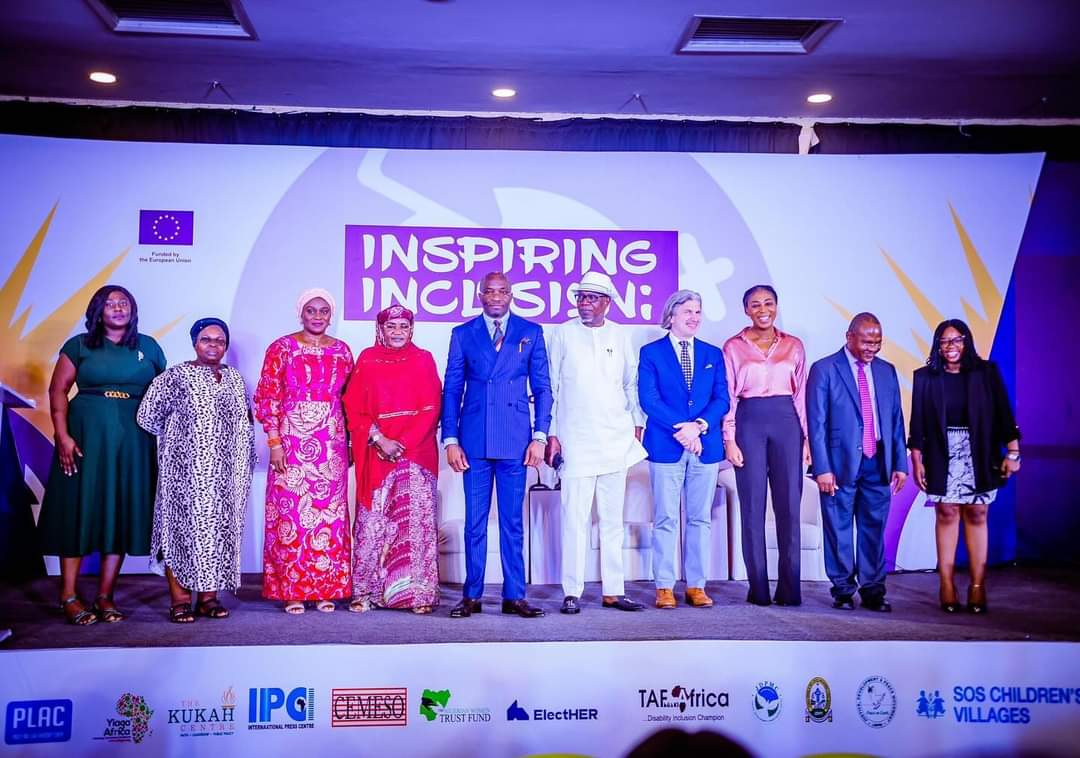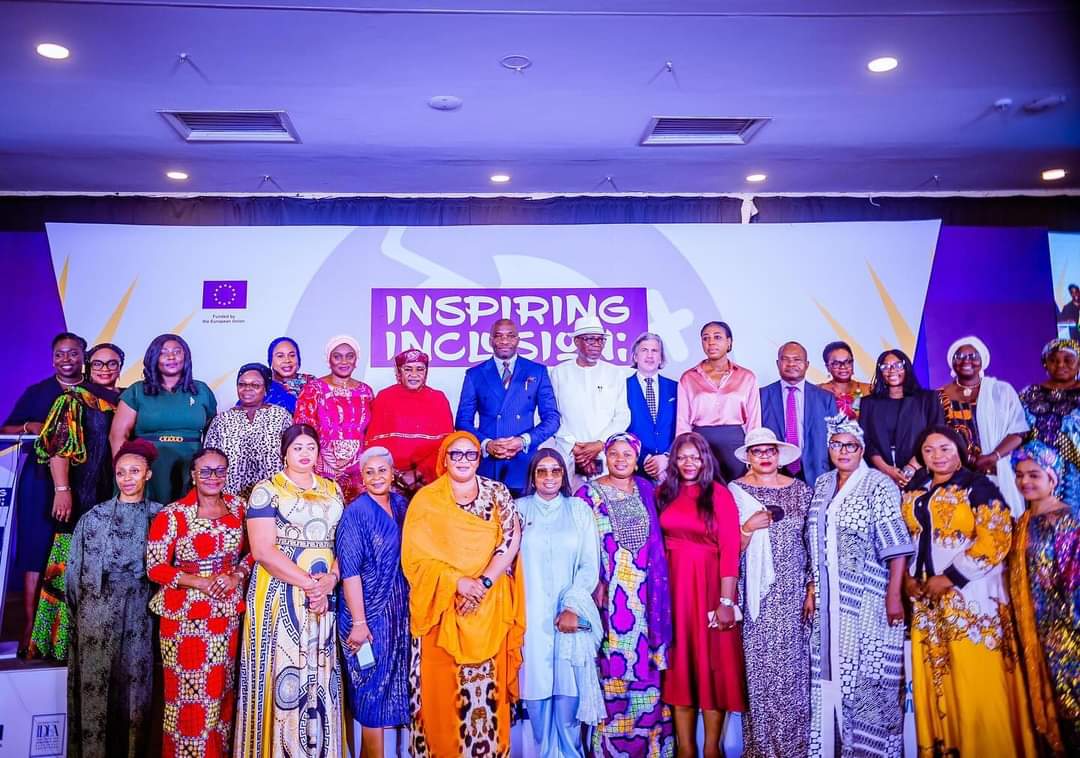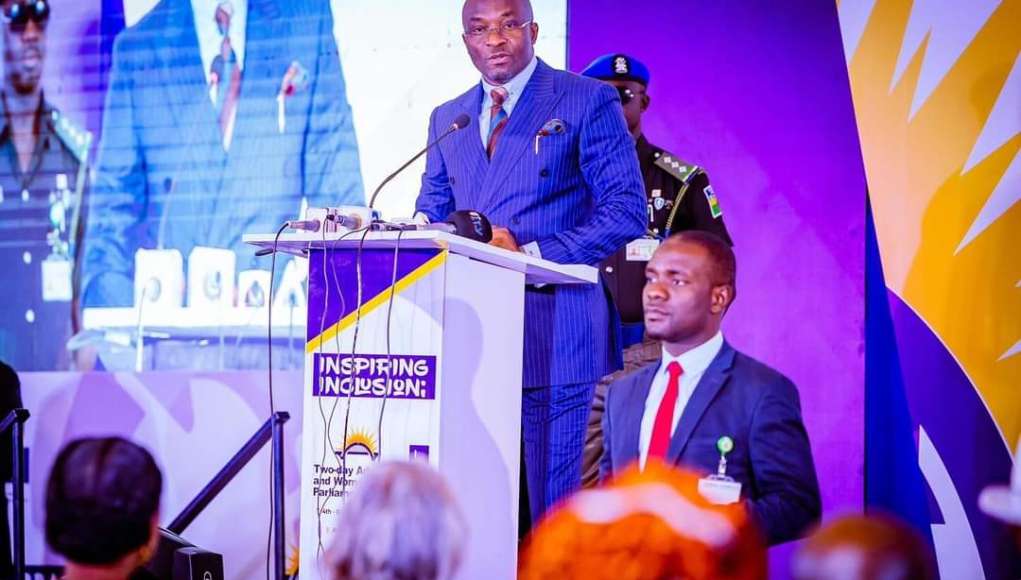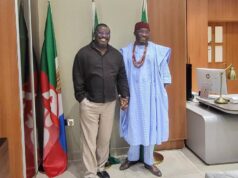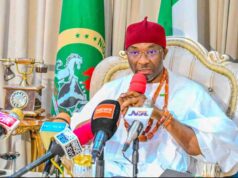Deputy Speaker of the House of Representatives, Rt. Hon. Benjamin Okezie Kalu has assured that the ongoing constitution review exercise by the 10th National Assembly will address the issue of gender imbalance.
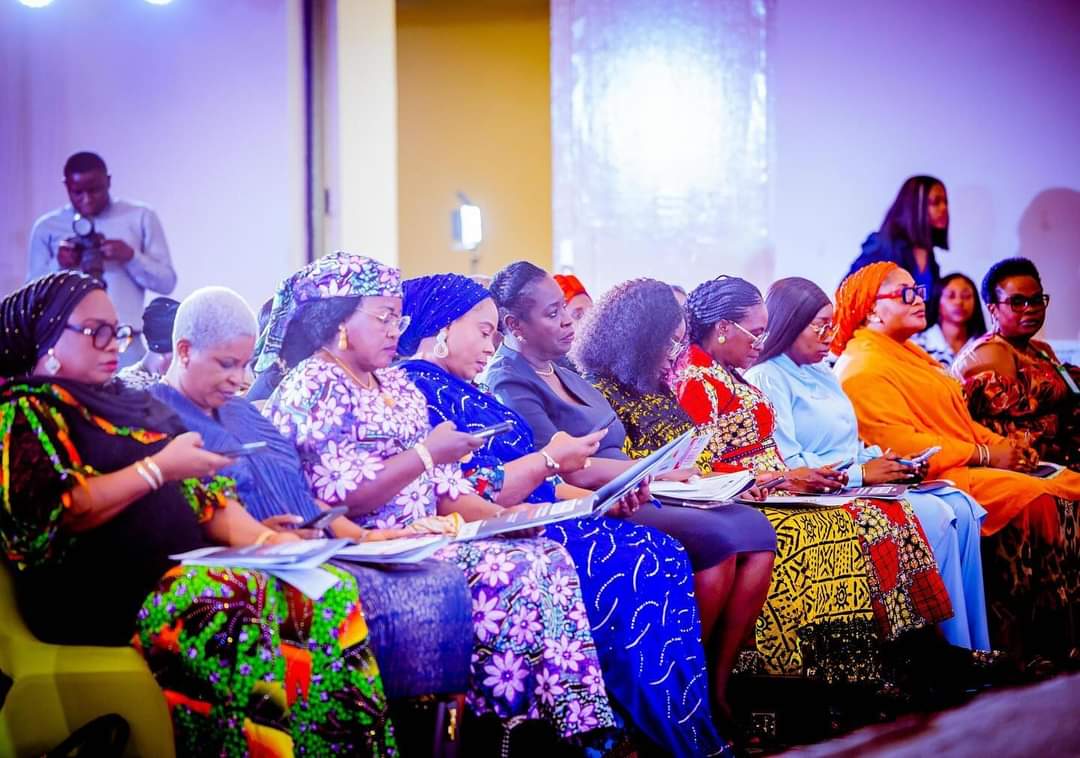
The Deputy Speaker who is also the Chairman, House Committee on Constitution Review gave the assurance on Monday while speaking at the ongoing Roundtable on Women Inclusion in Politics, organized by Policy and Legal Advocacy Center (PLAC), Yiaga Africa, Nigeria Women Trust Fund, ElectHer and the European Union (EU) in Abuja.
Kalu in a statement on Monday by his chief press secretary, Levinus Nwabughiogu bemoaned the poor participation of women in Nigerian politics, saying, countries like Rwanda had implemented a constitutional provision mandating at least 30% of parliamentary seats to be reserved for women.
He stressed that the impact has been profound with women now holding an unparalleled 61.3% of seats in the lower House of parliament in Rwanda.
According to the Deputy Speaker, the figure stood at 4% of women holding seats in the House of Representatives and 3.6% in the Senate in the Nigeria’s National Assembly.
He added that reservation of seats and adoption of electoral quotas for women would greatly increase the ranking of Nigeria amongst the commity of nations.
He however said with the ongoing constitution review exercise and the ‘body language’ of President Bola Ahmed Tinubu, the inclusion of the Nigerian women in politics will be realized.
He said: “What you are stating is the fact, the comparative analyses were not manipulated. I read a few prepared by PLAC a few minutes ago. The Giant of Africa is the least on the list of Women participation in politics. It is not good at all.
“Does the President (Tinubu) know this? Yes. Is he in support of such exclusion? No. Is he willing to take it to the next level? Yes.
“Are there evidences to show that he believes in that, or is his body language towards that? Yes. Check and you will find out that the First Lady was supported by him to be in the parliament for a very long time. Himself was also in the Parliament. He understands what you are talking about.
“The Vice President was in the Parliament. The Chief of Staff to the President was in the Parliament. The Secretary to the Government of the Federation was in the Parliament; and I’m happy to announce that his wife is with us in the House of Representatives.
“Why am I making these references? I make these references to encourage you that the body language of the current administration is to the fact that we want more women in politics and a friend of mine supported his wife and the wife is here and she is in the Parliament, so, Members of the House of Representatives are supporting their wives to be in the Parliament. Members of the House of Representatives are also marrying women who are in Parliament.
“So we are not afraid of women being in parliament. There is hope that it is going to get better and we are going to leverage this renewed hope that is found in the body language of the President of the Federal Republic of Nigeria. And I hopeful that he is going to assent to the bill we will put together in the Parliament.
“Let me also announce that you are lucky, so lucky that it is a ‘he for she’ that is in charge of the Constitution Review in the House of Representatives. And that is me. You know, I believe in empowering the women. And I also believe, sometimes they they do better than the men. Yeah, it is a fact”.
The Deputy Speaker also told the audience some of whom are women parliamentarian from the National Assembly and the State Houses of Assembly other possible ways to increase women’s participation in politics.
“Comprehensive gender equality requires a multifaceted approach that addresses deeply rooted barriers including discriminatory laws and practices, cultural biases, patriarchal attitudes, entrenched gender stereotypes, and unequal access to resources and opportunities which are formidable challenges that demand our collective attention. We must commit ourselves to dismantling these obstacles and creating an environment where women can thrive in politics.
“Moreover, we must also ensure that women elected through seat reservations are empowered to effectively represent the interests of their constituents and advocate for gender-responsive policies and legislation and this requires providing them with the necessary support, resources, and training to excel in their roles as parliamentarians.
“As legislators, we bear a responsibility to be catalysts for change. Beyond enacting laws that promote women’s inclusion, we must cultivate a culture of inclusivity within our legislative bodies. This involves building a supportive environment, amplifying women’s voices, and challenging discriminatory practices”, he said.
